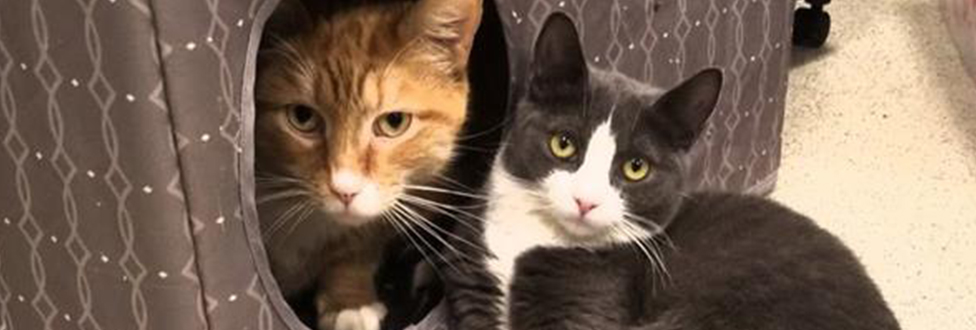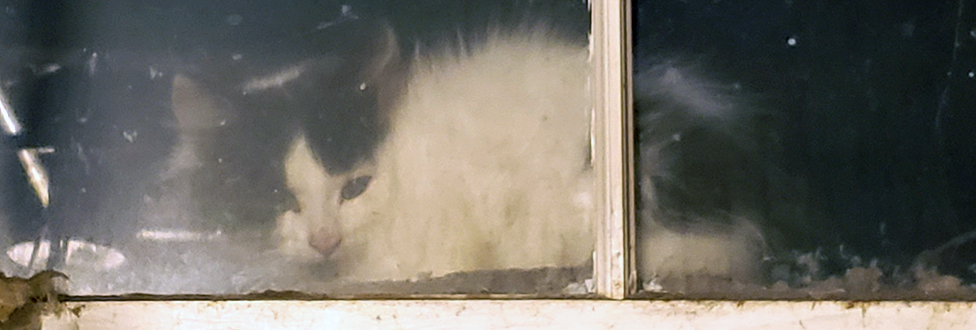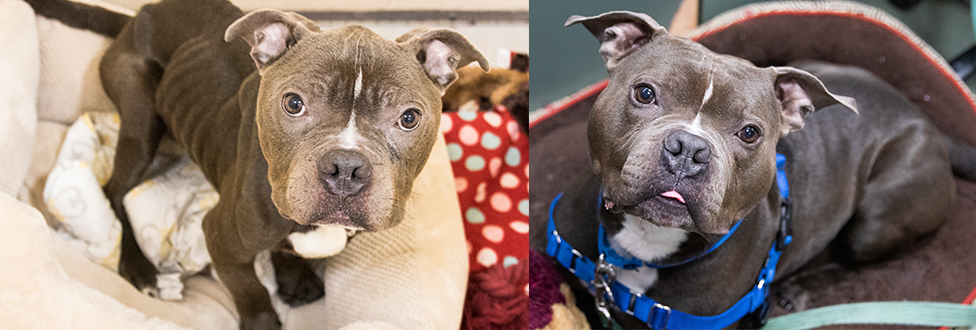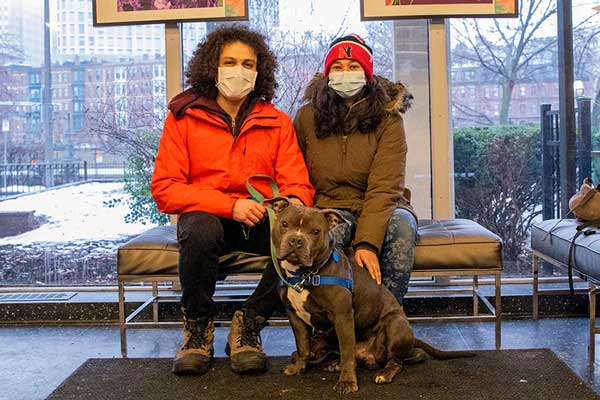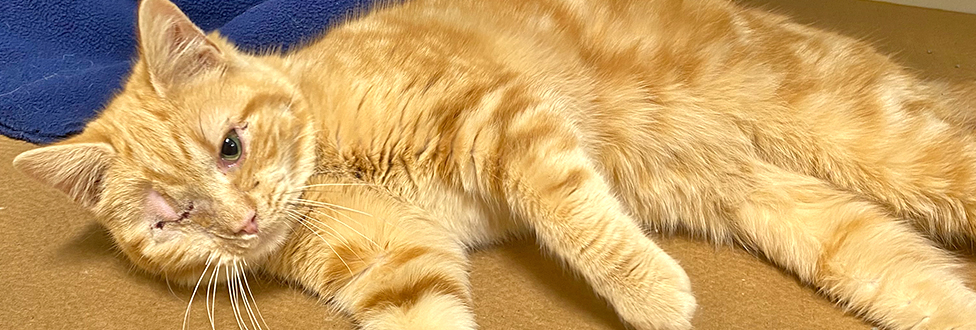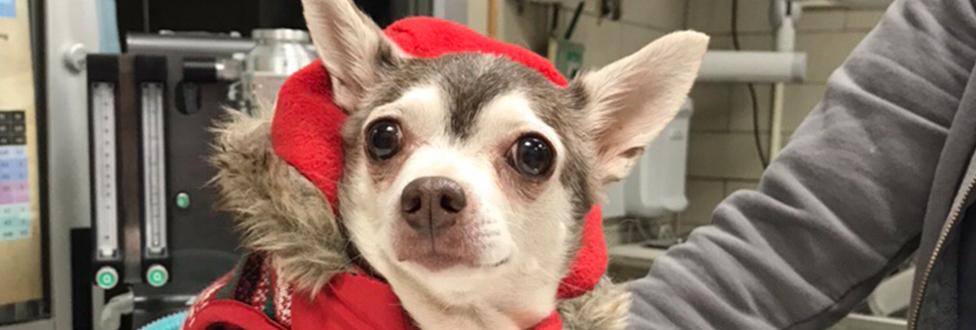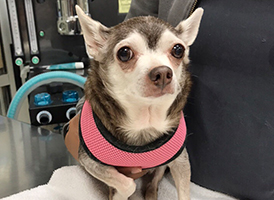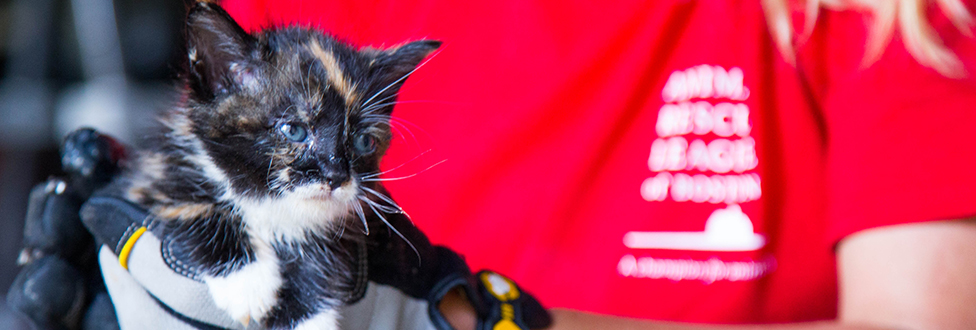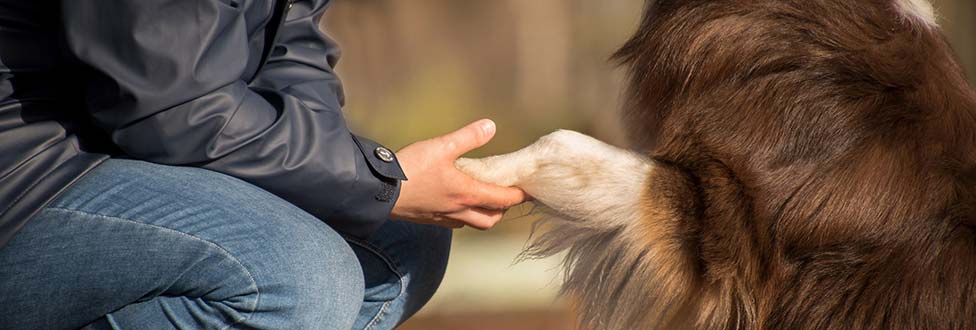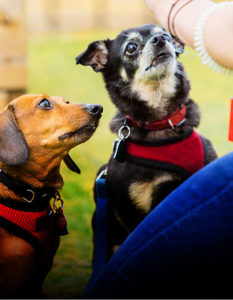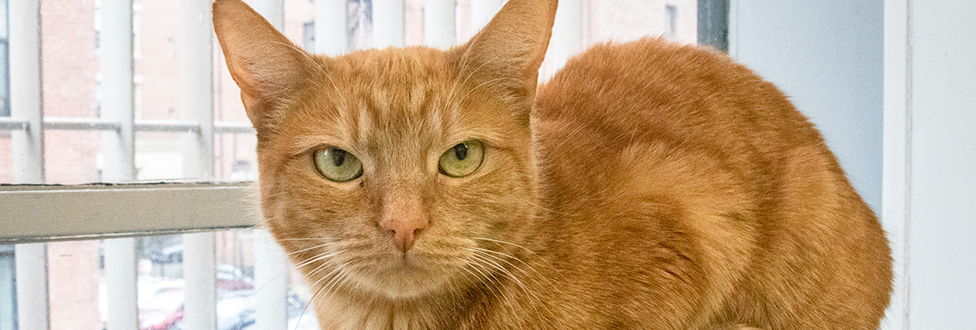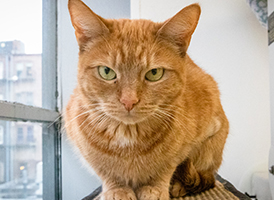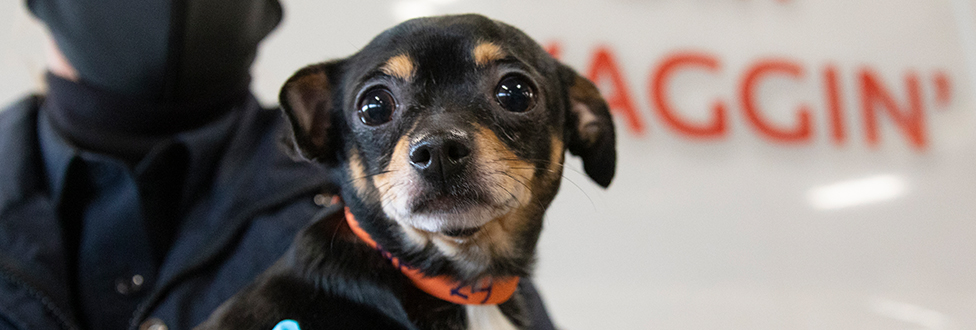A Friendship Forged Under Quarantine
For Ollie and Holly, they came from different areas, different situations, but fate (and a four-month quarantine) brought these two kitty friends together, and now the pair are set to spend the rest of their lives in the same home.
Five-year-old Ollie came to the Animal Rescue League of Boston (ARL) in November 2020 after he was stuck in a tree in Weymouth for five days.
When ARL’s Field Services Department went to rescue him, neighbors indicated he had been in the area for several months and that the neighborhood kids nicknamed him Oliver (Ollie) – the name stuck.
Ollie was transported to ARL’s Dedham Animal Care and Adoption Center, and because his veterinary exam revealed several puncture wounds of unknown origin, the former stray would need to undergo a state-mandated four-month-quarantine.
For Holly, she also came to ARL in November 2020 after being found as a stray in the North Dartmouth area. Along with being a little underweight, she had suffered wounds to her legs, and like Ollie, was required to spend the next four months in quarantine.
When Ollie Met Holly
Upon arrival at ARL, Holly was friendly but nervous, especially around new people – she did however enjoy being around other cats.
Ollie on the other hand was incredibly friendly upon arrival, saying hello to anyone who would pay him attention. When it came to other cats however, Ollie was not interested – until he met Holly.
The two were placed in an office so they could have more space to stretch out and interact with people during their quarantine period, and for Ollie, he quickly became interested in Holly.
The pair would play and were often seen napping together, and even eating together! With Ollie’s help, Holly slowly began to come out of her shell and be more social with people.
Going Home
Given the bond forged during their four-months in quarantine, it was decided that the former community cats should find their new home together.
It didn’t take long, just days after being made available for adoption they found their perfect match and are now enjoying their new surroundings – together.
ARL Community Cat Initiative
With approximately 700,000 community cats living throughout Massachusetts, ARL launched its Community Cat Initiative in 2018, and has already helped thousands of these animals in a variety of ways.
For more information about the initiative click here.
ARL Field Services
ARL Field Services provides technical and non-technical rescue operations for injured or lost domestic animals, livestock, and raptors (turkey vultures, osprey, hawks, eagles, falcons, and owls).
ARL Field Services also assists governmental agencies with equipment and training; and plays an essential role in assisting ARL Law Enforcement in cases of animal cruelty, neglect, and abuse.
If you need assistance, call (617) 426-9170 to reach ARL Field Services dispatch, which operates from 9:30 AM – 5:30 PM Tuesday-Saturday.

